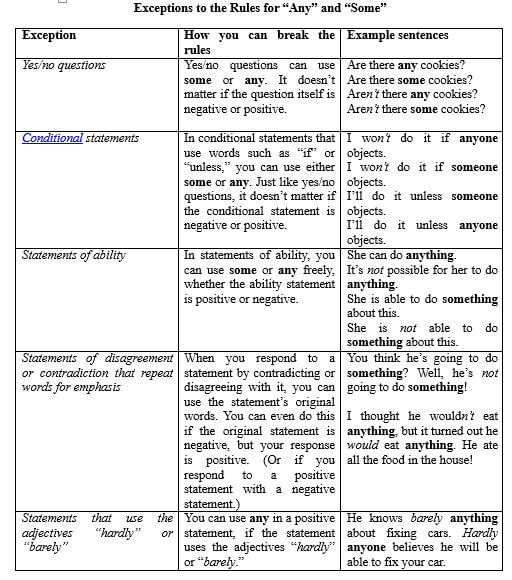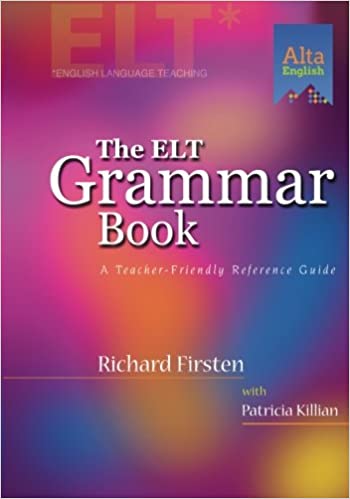In my last two posts about “any” and “some”, I showed you that the words “any” and “some” can be adjectives or root words in adverbs and pronouns. To review, here are the rules for using “any” and “some”:
Rule 1: “Any” can only be used in negative statements containing the word “not.”
Example of the rule:
This blog post doesn’t teach anything about TOEFL scoring. (This is correct.)
This blog post teaches anything about TOEFL scoring. (Without the word “not,” the statement becomes positive, but “anything” can only be used in negative statements. This sentence is incorrect.)
Rule 2: “Some” can only be used in positive statements that lack the word “not.”
Example of the rule:
This blog post is being read by someone. (Correct.)
This blog post is not being read by someone. (With the word “not” added, the statement becomes negative, but “someone” should be used in positive statements only. This is incorrect.)

Learning these rules and exceptions will help you use “any” and “some” effectively on the TOEFL (and in regular English use, too). In my next post on this topic, we’ll review all of the “any”/”some” words, and all of the rules/exceptions for using them.





